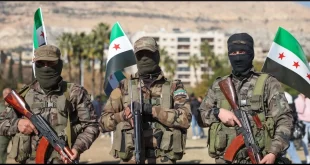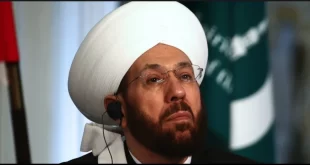Oct 30, 2013, Global Research
The US is determined to strengthen the hand of the Syrian rebel forces in advance of any peace talks in order to change the alignment of forces.
The recent violence could be part of that strategy, Brian Becker, Director of Answer Coalition, told RT.
RT: From these latest developments, does it seem to you that the Syrian rebels are still confident they can win the war?
Brian Becker: Well they have the US and the most powerful military and intelligence agencies behind them but they have not been winning the battle, they’ve been losing the battle because the people in Syria don’t want them. They don’t want to live under their rule. It is a foreign funded civil war. There has been so much suffering caused by this civil war. So I do not think they will succeed but the attack in Damascus, the shutdown of Damascus, the power outage this is a terrorist act.
Right now John Kerry is very happy, Chuck Hagel is very happy, President Obama is happy – this is what their policy is, to fund, finance and coordinate through the joint special operations command and the CIA this kind of terrorist action against the people of Syria. What the people of Syria need is a settlement, a political solution, not more terrorism.
RT: Does it appear at this point, in your opinion, that the rebels will attend the Geneva 2 talks or will they continue fighting?
BB: They may do both. I think the policy of the rebels, so called moderate rebels who are the proxies of Western forces are really dictated by Washington, the CIA and the Pentagon. They are not an independent force at this point. They are dependent on money and arms from Western powers and they are taking the cue from them as well. You can see the terrorist actions that are taking place in Damascus could be part and parcel of a negotiations strategy also in Geneva wherever a peace conference or peace talks might take place. The US government is determined to strengthen the hand of the rebel forces even in advance of any peace talks because they want to be able to change the relationship of forces which right now are under the advantage of the Assad government and the Syrian government.
RT: What would need to change for these talks to eventually create a way out of this deadlock then?
BB: The real way the talks could be productive is if the Washington administration and the governments in Britain and France were to decide that they cannot militarily defeat the Assad government, that it is an impossible mission, that it was a fantasy to begin with, and that they would put additional pressure on those proxy forces who receive their arms and guns from Western powers to actually come to the negotiation’s table. That would probably be the political premise for some sort of a negotiated settlement. Clearly the Assad government, the Syrian government, the Russian government, those who oppose foreign intervention have said, and they are on the record, that they are for peace talks and some sort of transitional settlement but they are not going to be dictated to by the rebels or by Western powers and told Assad must go. They are not going to do that.
RT: Syria’s chemical weapons are in the process of being destroyed. How could this latest blackout and fighting affect these international efforts?
BB: I think they may be partly designed to carry out disruption of the weapons inspections, because the weapon inspectors have had all kind of trouble getting onto areas under rebel control where the chemical weapons munitions seemed to have been used. There has been a lot of near-misses, mortar attacks, shelling and other kinds of military disruptions of the weapons inspector’s program and I think much of it, almost all of it is coming from the rebel’s side because perhaps they have something to hide.
 Syria Support Movement solidarity with the Syrian people
Syria Support Movement solidarity with the Syrian people




